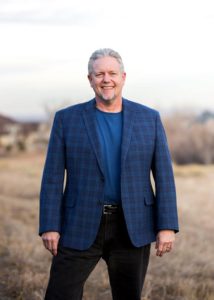“The science tells us.”
Oh really?!
What do researchers know that the rest of us don’t?
Watch our two minute Truth in Two to find out (full text below).
At Comenius, we ask questions, do our research, and let the answers speak for themselves.
Subscribe to “Truth in Two” videos  from Comenius (here). Mark is President of The Comenius Institute (website). Dr. Eckel spends time with Christian young people in public university (1 minute video), hosts a weekly radio program with diverse groups of guests (1 minute video), and interprets culture from a Christian vantage point (1 minute video). Consider becoming a Comenius patron (here).
from Comenius (here). Mark is President of The Comenius Institute (website). Dr. Eckel spends time with Christian young people in public university (1 minute video), hosts a weekly radio program with diverse groups of guests (1 minute video), and interprets culture from a Christian vantage point (1 minute video). Consider becoming a Comenius patron (here).
Picture Credit: Luke Renoe, Snappy Goat
FULL TEXT:
I couldn’t believe what I had just read. Here’s why.
Among the many passions I pursue, research is among them. I care deeply for careful examination of sources. I teach a course on inquiry where I show students how to analyze then evaluate information. My job is to ask questions and let the answers speak for themselves.
So when I read Ed Yong’s science article in the May, 2019 Atlantic, I was flabbergasted. Here is what Mr. Yong wrote:
[Quote] In many fields of science, from psychology to cancer biology, entire lines of research may be based on faulty results. Sometimes, researchers selectively publish positive results while sweeping negative ones under the rug. Other times, they futz with their data until they get something interesting, or retrofit their questions to match their answers. [End Quote]
You heard it right: sometimes researchers “futz with their data.” The word futz means to fiddle or fool around with something. Scientists, like every one of us, feel pressure to produce evidence or prove a point. At times, we might make ourselves look good by recounting the words of a conversation, in our favor. Other times, we might want to show our worth to a boss by padding our numbers to display production that isn’t really accurate. As Ed Yong reports, sometimes scientists feel the pressure of funding or administrative oversight to support their value to an institution.
There is a part of me that absolutely gets why scientists might futz with their experimentation: the part of me that makes me want to look good before others. But as we do research at the Comenius Institute, we ask questions, examine all sides of an issue, then, we let the answers speak for themselves.
For Truth in Two, this is Dr. Mark Eckel, president of the Comenius Institute, personally seeking truth wherever it’s found.
Research. How Scientists, Researchers Futz with Data (Atlantic hyperlink here)


